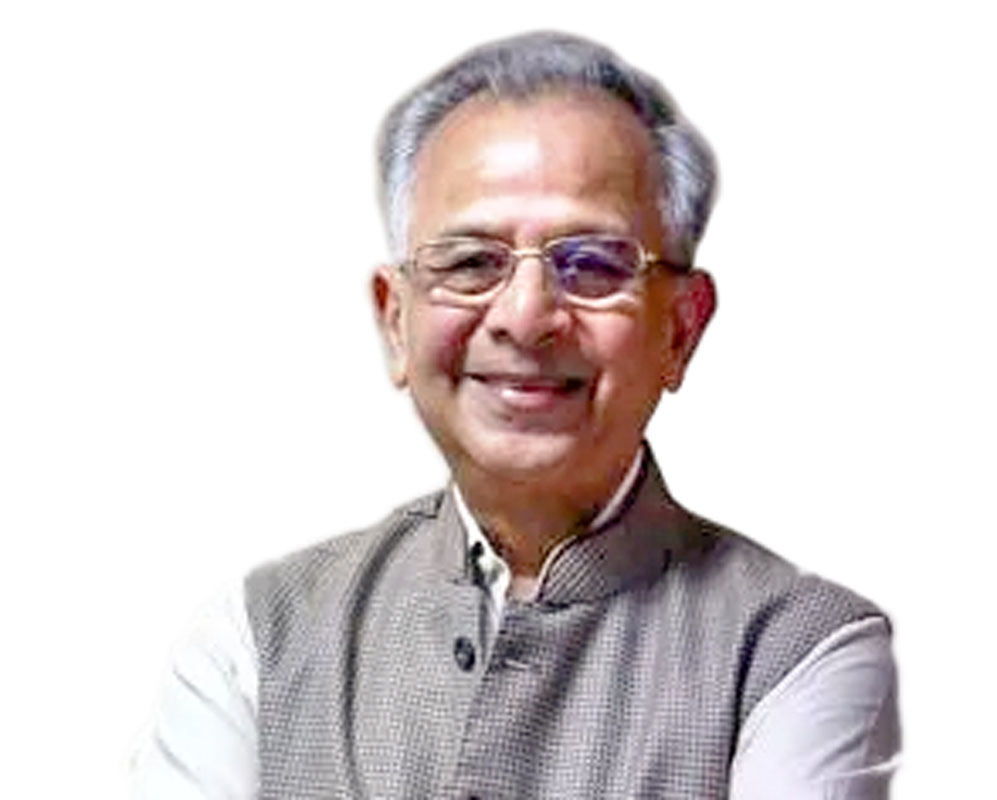
Covid-19 is seemingly shrinking in India and perhaps around the world. In February-March 2020, India found itself in the grip of the deadly virus. Neither the central government nor the states were prepared for the challenge. Caught off guard, the public health facilities were overwhelmed.
It was in this scenario that non-government organisations (NGOs) came to the rescue, providing personal protective equipment kits and N95 masks, and even oxygen by importing equipment such as oxygen concentrators.
In Chandigarh, Rotary and other NGOs extended a helping hand to the PGI and government hospitals. In fact, in the second wave they even started mini Covid centres to relieve the crowded hospitals.
At the national and local level, Rotary developed Covid Task Force headed by senior leader and past Rotary International director Ashok Mahajan to help in vaccine promotion and distribution, with mobile vans. In the second phase it focused on helping the economically challenged families.
This pandemic has changed our world forever. Within 18 months, not shaking hands while meeting friends, unthinkable earlier, has become the new normal. But it is so much more than handshakes that is changing. A permanent line will divide our lives and history — the period before Covid and after Covid.
Work from home will become a standard feature. Office protocol, office design, buildings, even urban planning will change. The way we travel will change with new protocol in public transport. Our outlook on health and wellness will change. Be it the way we deal with the environment, information or the leadership that governments provide, everything will change. The world after Covid will be a different world. It is up to us to make it better.
So, what are the big opportunities for social service organisations as we understand and accept the new norm. Here are some that I have identified:
Health and well-being
Covid pandemic has exposed the gross inadequacies in public health across the world, especially in the developing countries. Building public health infrastructure in Asian, African and South American nations will be a huge opportunity for the NGOs, working with governments, medical experts and corporations.
It is clear that pandemics such as Covid-19 are not the first or the last. Greater preparedness and quick reaction are crucial. We need infrastructure for early warning, more basic healthcare and greater education about prevention through better hygiene and social practices.
It is clear that pandemics such as Covid-19 are not the first or the last. Greater preparedness and quick reaction are crucial.
Support for primary health education as an important part of school curriculum needs to be encouraged. There is a great opportunity to assist in efforts building more nursing colleges — not only for Covid but for extensive care of the steadily aging global population.
International NGOs must also support the availability of essential medicines and vaccination to the poor across the world. It is well known that the quick availability of Covid vaccines costing as little as $4–8 can prevent billions of dollars of economic loss and ruin in the world in which the poor get hurt the most.
Environment
While the origin of Covid virus continues to be debated, one thing is clear — it came from wild animals. As humans increasingly encroach the wild habitats for food and convenience, we run the risk of more such disasters.
We must respect nature and wild habitats, and change to more environment-friendly consumption habits. In our hunger for energy, we are irreparably destroying our land, air and oceans. Organisations like Rotary International should focus on environmental services.
Closer families and communities
Another realisation in recent times has been how rapidly the feeling of isolation has grown. Social media, the growth of international trade and globalisation has meant that (a) we are more connected to our phones than our families sitting around the table and (b) almost everything we buy, including water, paper and groceries, are produced by factories thousands of miles away, while local producers close their businesses.
Last 18 months have taught us the irreplaceable value of the family, the community, of finding happiness within, of local sightseeing instead of travelling to distant lands each holiday. I do not mean to shun international trade or tourism, but local, national and international must merge with happy balance.
Dr Tedros Adhanom Ghebreyesus, WHO Director-General, said in the first months of the pandemic:
“Be safe from coronavirus infection; be smart to inform yourself about it; be kind and support one another.”
Let us hope we can see the end of this pandemic and the beginning of “not-so-normal” life in which we finally decide it is time to build a fairer, more inclusive and sustainable society.
The writer is former president of Rotary International
(Courtesy: The Indian Express)






